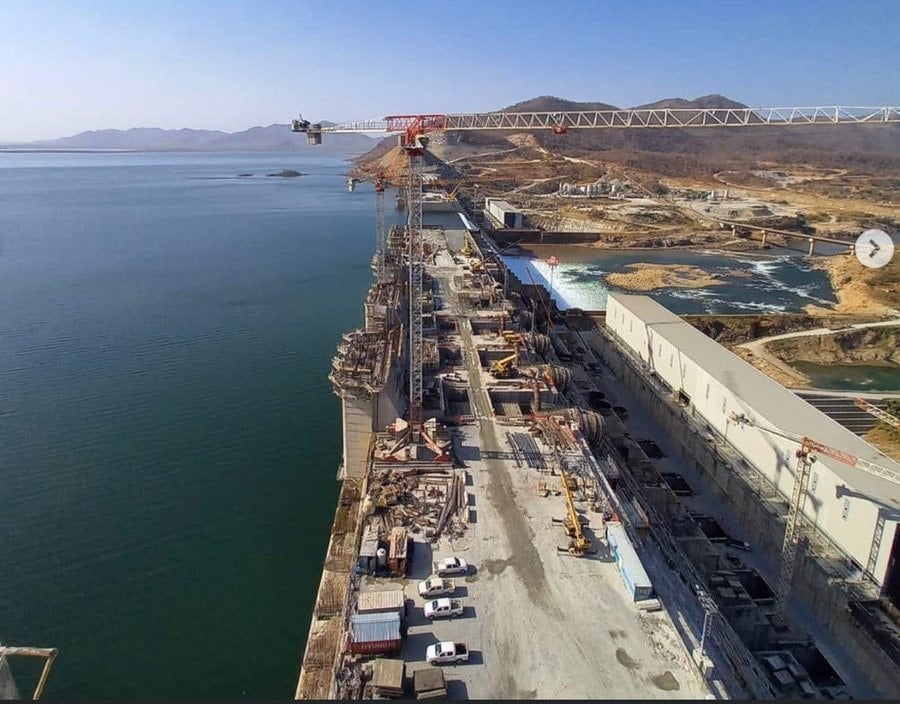
BY YOHANES JEMANEH
As a preparation to the second filling of the Grand Ethiopian Renaissance Dam (GERD), Ethiopia has started releasing the reservoir’s water that had been contained during the initial filling. The country has released information through her premier and water, irrigation and energy minister.

On Sunday, Prime Minister Abiy Ahmed noted that the next filling takes place only during the heavy rain months of July/August, ensuring benefits on top of reducing floods in Sudan. Ahead of the 2nd filling, sharing information Ethiopia is releasing more water from last year’s storage through newly completed outlets.
Ethiopia has no intention of causing harm to lower riparian countries while utilizing the river. Heavy rains last year enabled successful 1st filling of the GERD while the presence of the GERD itself has undoubtedly prevented severe flooding in neighboring Sudan, the premier wrote on his official Facebook page.
However, standing contrary to Ethiopia’s transparent utilization, data exchanging proposal on the second filling, Sudan is blindly expressing its dream to reach binding agreement ahead of anything. Sudanese Prime Minister Abdela Hamdok recently told France 24 that he called on his Ethiopian and Egyptian counterparts to come to a roundtable discussion to reach a binding agreement before the second filling of the reservoir of the grand dam.
As to him, the three countries have reached on an impasse in spite of the negotiations led by AU or US. The issue is “critical and time bound” since Ethiopia announced the second filling of the dam will take place on the coming July. Sudan is waiting for Egypt and Ethiopia to respond to the call within ten days, he added.
“We think we are addressing this issue within the limit of the international law. We can for sure through dialogue resolve this issue. And we have no limits and we will go to anywhere possible including [UNSC] to reach binding agreement”.
However, Ethiopia is reiterating that internationalizing the issue will not bring a middle ground. Last Thursday, Deputy Prime Minister and Foreign Minister Demeke Mekonnen said that posing unnecessary pressure on Ethiopia by intentionally politicizing and internationalizing the matter will not make Ethiopia accept the colonial-era treaty over the Abay River, he said.
He also noted that Ethiopia would never agree with such unfair terms that seek to maintain the hydro hegemony of Egypt and Sudan on Abay River.

However, Hamdok believed that the countries can reach binding agreement on GERD. He said, “We think there is enough resources”.
On the other hand, Ethiopian experts are noting that Sudan and Egypt are keen on having a water-sharing agreement than handling the specific cases related to the dam, said Ethiopian GERD Negotiating Team Member Professor Yilma Seleshi. Ethiopia is not willing to sign an agreement that will compromise the development endeavors of future generations, he added.
Another member of the negotiating team Lemlem Fisseha said what Ethiopia has done in going a long distance in trying to entertain water-sharing talks, in the absence of international agreement on the use of Nile water is commendable.
Recently, MoFA has denounced the wrong political position of Egypt and Sudan in discrediting AU-led negotiation on GERD and their claim of the dam as a threat to Arab water security while both countries are African and the project is located in the African continent.
The Ethiopian Herald 21 April 2021


